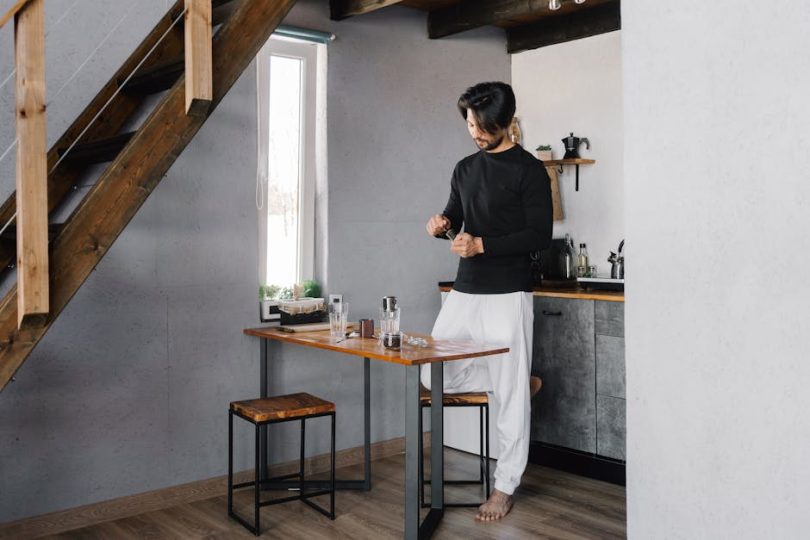Stress Relief: Simple Practices for a Calmer Life
In today’s fast-paced world, stress has become an inevitable part of our daily lives. While a certain level of stress can be motivating, chronic stress can take a toll on our mental and physical health. According to the American Institute of Stress, 77% of people experience stress that affects their physical health, and 73% report stress impacting their mental health.
This post contains Amazon affiliate links, meaning I may earn a small commission if you purchase through my links, at no extra cost to you. Note: We aim to provide accurate product links, but some may occasionally expire or become unavailable. If this happens, please search directly on Amazon for the product or a suitable alternative.
The good news is that there are simple and effective practices you can incorporate into your routine to help manage and reduce stress. In this blog post, we’ll explore various stress relief techniques that can lead to a calmer, more peaceful life.
Understanding Stress and Its Impact
Before we dive into actionable tips, it’s important to understand what stress is and how it affects us. Stress is the body’s natural response to perceived threats or challenges. When you encounter a stressful situation, your body releases hormones like cortisol and adrenaline, preparing you for a ‘fight or flight’ response.
While this response can be beneficial in short bursts, chronic stress can lead to a range of health problems, including:
- High blood pressure
- Heart disease
- Diabetes
- Anxiety and depression
- Digestive issues
Simple Practices for Stress Relief
1. Mindfulness Meditation
Mindfulness meditation is a practice that involves focusing your attention on the present moment without judgment. Studies have shown that mindfulness meditation can significantly reduce stress levels and improve overall well-being.
To get started with mindfulness meditation:
- Find a quiet, comfortable place to sit or lie down.
- Close your eyes and take a few deep breaths.
- Focus on your breath, noticing the sensation of the air entering and leaving your body.
- If your mind wanders, gently bring your focus back to your breath.
- Practice for 5-10 minutes daily, gradually increasing the duration as you become more comfortable.
2. Physical Exercise
Physical exercise is a powerful stress reliever. When you exercise, your body releases endorphins, which are natural mood lifters. Regular physical activity can also improve sleep, boost self-confidence, and reduce symptoms of anxiety and depression.
Here are some ways to incorporate exercise into your routine:
- Go for a brisk walk or jog in the park.
- Take a yoga or pilates class.
- Join a local sports team or club.
- Try home workouts or follow online fitness videos.
3. Deep Breathing Exercises
Deep breathing exercises can activate the body’s relaxation response and reduce stress. One effective technique is diaphragmatic breathing, which involves breathing deeply into the diaphragm rather than shallowly into the chest.
To practice diaphragmatic breathing:
- Sit or lie down in a comfortable position.
- Place one hand on your chest and the other on your abdomen.
- Inhale deeply through your nose, allowing your abdomen to rise while keeping your chest still.
- Exhale slowly through your mouth, feeling your abdomen fall.
- Repeat for 5-10 minutes.
4. Progressive Muscle Relaxation
Progressive muscle relaxation (PMR) is a technique that involves tensing and then relaxing different muscle groups in the body. This practice can help reduce physical tension and promote a sense of calm.
Here’s how to do PMR:
- Find a quiet, comfortable place to sit or lie down.
- Start with your feet and work your way up to your head.
- Tense each muscle group for 5-10 seconds, then release and relax for 20-30 seconds.
- Notice the difference between tension and relaxation in each muscle group.
5. Journaling
Journaling can be a therapeutic way to process your thoughts and emotions. Writing down your feelings can help you gain perspective on stressful situations and identify patterns that contribute to your stress.
To start journaling:
- Set aside 10-15 minutes each day to write.
- Write about your thoughts, feelings, and experiences without judgment.
- Use prompts if you’re unsure where to start (e.g., “What am I grateful for today?” or “What challenges did I face today?”).
6. Spending Time in Nature
Spending time in nature has been shown to reduce stress and improve mental health. Whether it’s a walk in the park, a hike in the mountains, or simply sitting in your garden, connecting with nature can have a calming effect.
Here are some ways to incorporate nature into your routine:
- Take a daily walk in a nearby park or green space.
- Plan weekend hikes or outdoor activities.
- Create a small garden or indoor plant space at home.
- Practice mindfulness or meditation outdoors.
7. Healthy Eating Habits
Your diet can have a significant impact on your stress levels. Eating a balanced diet rich in fruits, vegetables, whole grains, and lean proteins can help stabilize your mood and energy levels.
Consider the following tips for healthy eating:
- Eat regular, balanced meals throughout the day.
- Limit caffeine and sugar intake, as they can contribute to anxiety and mood swings.
- Stay hydrated by drinking plenty of water.
- Incorporate stress-reducing foods like leafy greens, nuts, and fatty fish.
8. Social Support
Having a strong social support system can help buffer against stress. Connecting with friends, family, and loved ones can provide emotional support, reduce feelings of isolation, and improve your overall well-being.
Ways to build and maintain social connections:
- Schedule regular catch-ups with friends and family.
- Join clubs, groups, or organizations that interest you.
- Volunteer for causes you’re passionate about.
- Seek professional support if needed, such as counseling or therapy.
Conclusion
Stress is an inevitable part of life, but it doesn’t have to control you. By incorporating these simple stress relief practices into your daily routine, you can cultivate a calmer, more peaceful life. Remember, it’s important to find what works best for you and make self-care a priority. Whether it’s through mindfulness meditation, physical exercise, deep breathing, or spending time in nature, there are numerous ways to manage stress and enhance your well-being.
If you found this article helpful, consider sharing it with others who may benefit from these stress relief techniques. Together, we can create a more relaxed and balanced world.









